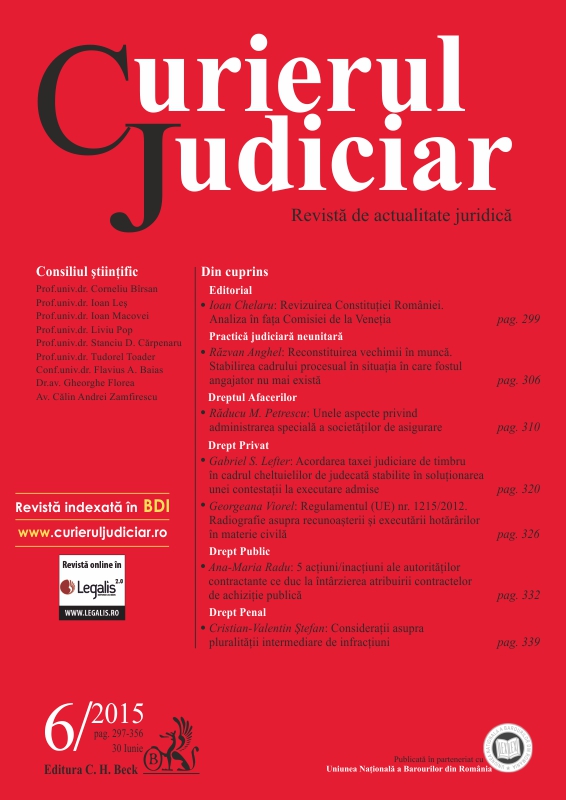Hotărârea de partaj și efectele partajului. Căile de atac
The partition decision and it's effects. Ways to challenge it
Author(s): Doru TrăilăSubject(s): Law, Constitution, Jurisprudence
Published by: C.H. Beck Publishing House - Romania
Keywords: partial judgement;minute for admittance in principle;partition made in kind;forming the lots;cash balance;effects of annulling the partition decision;sanction for non payment the cost for the expert
Summary/Abstract: One can not be forced to stay in co-ownership. This principle is the start point for understanding the partition procedure, which is sought the civil procedure remedy in case the co-owners did not found the wise ways to solve the problem in amiable way (taking into account that the co-ownership is usually a family issue). Having in mind the complexity of the procedure, which does not result from the laws applicable, but from the different nature of the assets to be divided and the necessity to be evaluated, from the limits imposed by the law when establishing the in kind partition principle, the fact that the deceased person could have been disposed either in the will either in other legal documents or acts (priority partition agreements or precipice clause) the partition procedure may imply some intermediary stages. the most important one is the stage were the in principle admittance minute is issued. Also, the court could issue partial rulings when the parties agree on the partition on certain assets and the procedure will follow only for the rest of the assets. The analysis continues with the rules applicable for forming the lots, bearing the expenses during the procedure, and the sanctions applicable in case of failing to comply. When requested, the court could decide on interim allocation of the assets, the lots being subject to balance through paying amounts of money in the time frame established by the judge. Also, it is analysed the possibility that the single asset be allocated to a single co-owner beside the classic option to sell the assets to public auction.
Journal: Curierul judiciar
- Issue Year: 2015
- Issue No: 06
- Page Range: 313-319
- Page Count: 7
- Language: Romanian
- Content File-PDF

